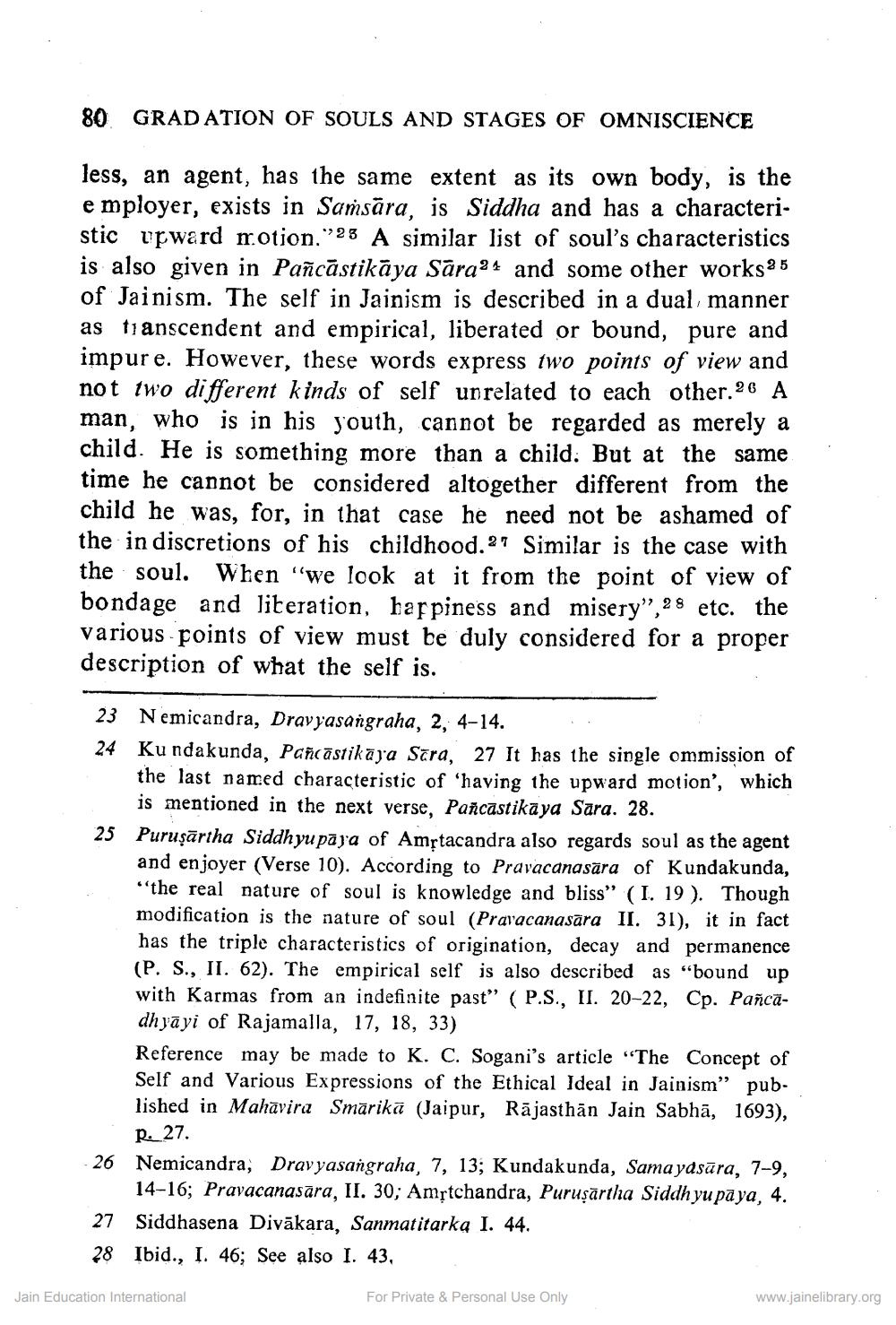________________
80 GRADATION OF SOULS AND STAGES OF OMNISCIENCE
less, an agent, has the same extent as its own body, is the employer, exists in Samsāra, is Siddha and has a characteristic upward motion."'23 A similar list of soul's characteristics is also given in Pañcāstikāya Sara24 and some other works25 of Jainism. The self in Jainism is described in a dual manner as tianscendent and empirical, liberated or bound, pure and impure. However, these words express two points of view and not two different kinds of self unrelated to each other. 26 A man, who is in his youth, cannot be regarded as merely a child. He is something more than a child. But at the same time he cannot be considered altogether different from the child he was, for, in that case he need not be ashamed of the in discretions of his childhood. 21 Similar is the case with the soul. When we look at it from the point of view of bondage and literation, haspiness and misery”, 28 etc. the various points of view must be duly considered for a proper description of what the self is.
23 Nemicandra, Dravyasangraha, 2, 4-14. 24 Ku ndakunda, Pañcāstikāja Sara. 27 It has the single ommission of
the last named characteristic of 'having the upward motion', which
is mentioned in the next verse, Pancastikāya Sara. 28. 25 Puruşārtha Siddh yu pāya of Amrtacandra also regards soul as the agent
and enjoyer (Verse 10). According to Pravacanasāra of Kundakunda, "the real nature of soul is knowledge and bliss" (I. 19). Though modification is the nature of soul (Pravacanasara II. 31), it in fact has the triple characteristics of origination, decay and permanence (P. S., II. 62). The empirical self is also described as “bound up with Karmas from an indefinite past" (P.S., II. 20-22, Cp. Pancadhyāyi of Rajamalla, 17, 18, 33) Reference may be made to K. C. Sogani's article "The Concept of Self and Various Expressions of the Ethical Ideal in Jainism” published in Mahavira Smārikā (Jaipur, Rajasthan Jain Sabhā, 1693),
p. 27. 26 Nemicandra, Dravyasangraha, 7, 13; Kundakunda, Sama ydsāra, 7-9,
14-16; Pravacanasāra, II. 30; Amstchandra, Puruşārtha Siddh yu pāya, 4. 27 Siddhasena Divākara, Sanmatitarka I. 44. 28 Ibid., I. 46; See also I. 43,
Jain Education International
For Private & Personal Use Only
www.jainelibrary.org




